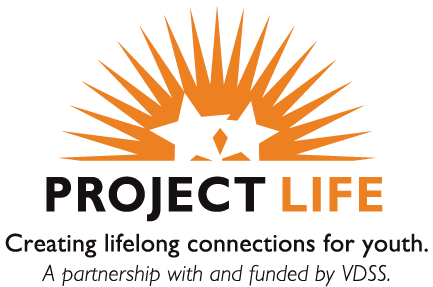MY IL JOURNEY
Welcome to the Youth Guide. In a little while, you’re going to age out of foster care. We have some great tips to help you prepare for that day. Check out the Age Timeline to see what steps you can take this year to get you in a good place now and get you ready for your future.
Your Age
Event | Initial Independent Living (IL) Assessment
The Casey Life Skills Assessment is a preferred tool to be administered within 30 days after you turn 14 years of age if you are in foster care; if you are just entering foster care, the assessment is required to be administered within 30 days of your entering. The IL Assessment is to be re-administered annually.
The IL Assessment helps you identify your strengths and what you need to work on to prepare for transitioning to adulthoood. The IL Assessment is NOT a test – it’s a tool that gives you information for developing your IL Services and Transition Plan.
Event | IL Services and Transition Plan (ILSTP)
This Plan is required to be developed for every youth in foster care age 14 or older. The Plan is to be reviewed and updated every 12 months.
Your Opportunities
- YOU have a central role in all service planning and decision making.
- YOU identify family members and others you trust to become part of YOUR TEAM to help prepare you for adulthood.
- YOU set the goals for learning.
- YOU select the independent living services and activities you’ll complete to achieve your goals.
- YOU identify how YOUR TEAM members can support you.
Congratulations! You can now attend all Project LIFE programming including conferences and workshops!
Dictionary
Adult Supporter:
An adult who partners with a youth to help him or her achieve a goal or who partners with an agency to promote youth engagement
Advocacy:
A strategic action or plan used to influence decision-making and positive change. Simply put, advocacy is speaking or acting on behalf of oneself or someone else.
Casey Life Skills Assessment (CLSA):
An assessment and planning tool for evaluating the life skills of older youth and young adults. It is youth-centered and strength-based in evaluating the independent living skills and needs of youth in foster care. The ACLSA identifies the youth’s strengths and needs in nine domains: career planning, communication, daily living, housing and money management, self care, social relationships, work life, and work and study skills. The domain scores indicate areas of strength and opportunities for improvement. (caseylifeskills.org)
Court Appointed Special Advocate (CASA):
Individuals appointed by judges to watch over and advocate for abused and neglected youth, to ensure youth are spoken for in the overburdened legal and social service systems and do not languish in inappropriate group or foster homes
Comprehensive Services Act (CSA):
The purpose of the act is to provide high quality, youth-centered, family-focused, cost effective, communi- ty-based services to high-risk youth and their families.
Community Policy and Management Team (CPMT):
A team of individuals who create, maintain and manage a collaborative system of services and funding that is youth-centered, family-focused, and community based when addressing the strengths and needs of at-risk youth and their families.
